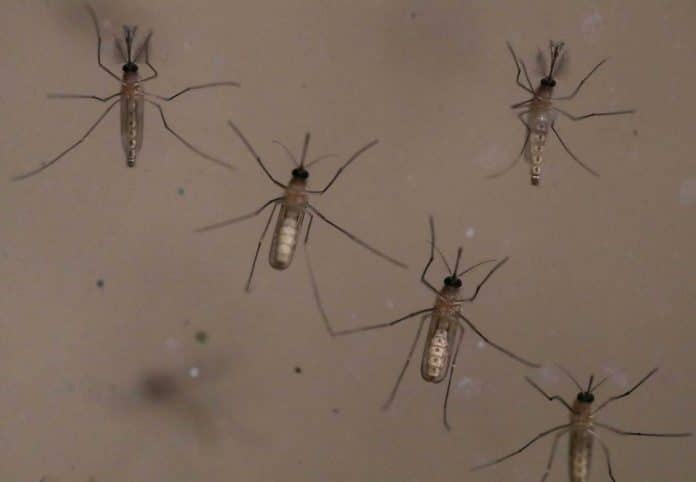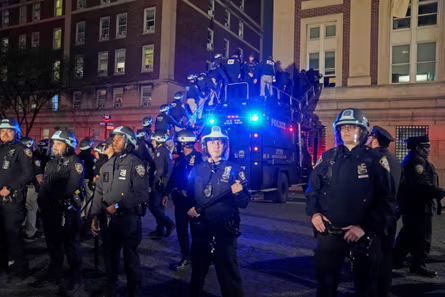When Stephanie Nolen started working as a journalist in different countries in the global south 25 years ago, the significant burden of malaria in those areas made it only natural that she’d care about covering the devastation of the disease carriers: mosquitoes.
Despite the world’s best efforts, the threat of mosquitoes as disease carriers has worsened.
When Stephanie Nolen started working as a journalist in different countries in the global south 25 years ago, the significant burden of malaria in those areas made it only natural that she’d care about covering the devastation of the disease carriers: mosquitoes.
According to the last malaria report by the World Health Organisation (WHO), there were an estimated 247 million malaria cases and 619,000 malaria deaths globally in 2021.
Despite the world’s best efforts, the threat of mosquitoes as malaria vectors and carriers of other dangerous diseases, like dengue, yellow fever, and Zika, has worsened.
This never-ending threat fueled Nolen’s decision to embark on a special project investigating the global fight against mosquito-borne diseases by visiting countries in Africa and Latin America, areas where people are most affected.
In her travels, the New York Times’ global health reporter discovered the worrying rise of the Anopheles stephensi, a mosquito species, in urban African areas; found mosquitoes that have evolved to resist and evade bed nets and insecticides, the most common tools against the carriers; and reported a growing strategy in Tanzania to mosquito-proof residences.
The journalist also visited a lab in Colombia where a special breed of mosquitoes fused with a parasitic bacteria called Wolbachia are manufactured to neutralize the threats of the deadly Aedes aegypti mosquitoes which spread arboviral diseases.
Nolen told Pulse Nigeria all about what she discovered on her trips.
Why did you go around the world investigating mosquitoes?
I wasn’t expecting to go to all these places or take so long on this project when I started a year ago, but the story kept leading me to place after place. I wanted to see the new technologies in action or see the constraints and challenges first-hand. For example, seeing the Wolbachia method implemented in Colombia gave me both a sense of what a huge achievement it is to control dengue in a place the size of Medellin, but also of how logistically challenging and resource-intensive it is to produce billions of Wolbachia-infected mosquitoes. Obviously, to learn about the threat posed by Anopheles Stephensi, I had to go to the city that had been invaded by this mosquito.
How did you decide on the countries to visit? I’m particularly curious why Nigeria was omitted from your tour considering it carries the biggest malaria burden in the world
I always learn so much in Nigeria and would have been glad to go there had it been the best choice for any of the stories, but I wouldn’t say the country was omitted.
The focus of the project wasn’t malaria, per se, but rather mosquito-borne illnesses and tools that might work against them — ideally one tool against several kinds of diseases, since more and more places are under threat from multiple mosquitoes or pathogens. For each story, I went to the country that gave me the best chance to look at an intervention or a problem up close. Nigeria doesn’t yet have an urban malaria problem from Anopheles Stephensi; it isn’t trying Wolbachia or genetic modification.
There were no suitable clinical trials to look at spatial repellents, endectocides, ATSBs, etc in Nigeria. I did speak to and learn from a number of Nigerian experts, including the entomologist, Dr Adeogun Adedapo.
What’s the biggest discovery from your tour?
I loved reporting on some of the new gadgets and really bold scientific experiments: genetically modifying a mosquito so it can’t pass on a parasite will be brilliant if it works. But in the end, the part I found most interesting was the research into housing modification as a solution. I really appreciated the Tanzanian researchers doing the work to figure out just how affordable this could be. I learnt so much walking through villages with them and talking to people about how with just one or two hundred dollars total, they could malaria-proof their home for good.
One of the experts in your series of reports said the mosquitoes are winning the fight. Do you agree with this and if so, in what ways?
Reluctantly, I would say that. Mosquitoes are evolving and adapting faster than we’re coming up with solutions, and climate change is going to turbocharge this imbalance.
Mosquitoes are increasingly resistant to all our insecticides, and we are years away from having new ones on the market. They’re changing their biting behavior (daytime, outdoors) so that nets aren’t protective. They’re finding new habitats, and spreading to new places.
But we take a decade to get a new tool to market, and most mosquito interventions are donor-funded, so there’s an ineffective one-size-fits-all approach and a love for new but temporary commodities rather than the kind of systemic change (for example, investing in better housing and sanitation) that might make a permanent difference.
What’s currently the biggest challenge in the fight against malaria and other mosquito-borne diseases?
I would say a lack of funding. Malaria investment has plateaued; the bulk of it comes from a couple of big international philanthropies or multilateral donors like the Global Fund and Gates Foundation; and there is a need for massive additional investment if sub-Saharan Africa is going to get to elimination.
There are currently two WHO-recommended malaria vaccines. How crucial do you consider them in this fight?
They will be really important, especially in Nigeria and other very high-burden countries. The vaccines should have a big impact on child deaths. But as we know from COVID, vaccines are challenging. They’re expensive, and they require infrastructure and intensive healthcare system investment. So they’re not going to be the solution everywhere.
And they’re not going to end the economic pain that households feel from adults falling ill.
What’s the most important thing the global health community must get right to stand a chance in the fight against malaria and other mosquito-borne diseases?
So many things, I can’t pick just one! Using different approaches in different places.
Staggering and rotating the use of insecticides and treatments to try to stave off resistance until we have new tools. Moving faster, especially on the really innovative new solutions such as genetic modification. Moving fast on Anopheles Stephensi before there is established malaria in Lagos and Abuja, and Kinshasa and Nairobi. And being willing to look past the lure of commodities to help people invest in the kinds of housing improvement and sanitation systems that would reduce the risks.















